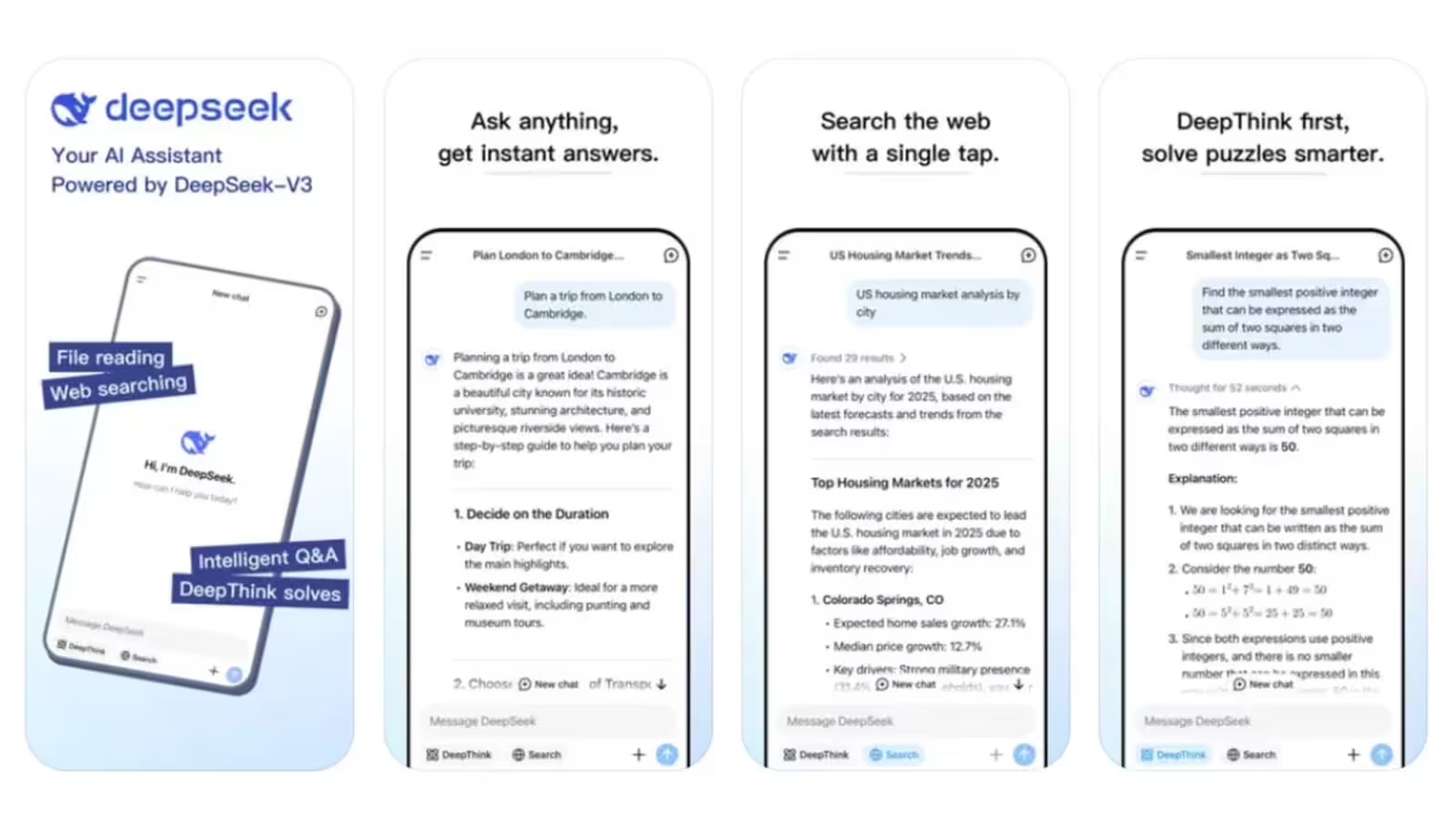4 Minutes
DeepSeek: China’s Budget LLM That Made Global Waves
Earlier this year, the artificial intelligence landscape saw a dramatic shakeup with the rapid ascent of DeepSeek—a powerful Large Language Model (LLM) developed in China. Despite its relatively modest development budget of $5.6 million and reliance on around 2,000 Nvidia H800 GPUs, DeepSeek managed to secure the top spot as the most downloaded free app on the U.S. App Store, briefly surpassing industry stalwarts like OpenAI’s ChatGPT. This unprecedented rise showcased China’s growing capabilities in the global AI race, where typically, AI models such as ChatGPT and Google Gemini demand far higher investments.
Data Privacy and Content Regulation Issues Surface
However, DeepSeek’s momentum was soon met with skepticism and heightened scrutiny. Investigations revealed that responses generated by DeepSeek could be influenced or censored to align with Chinese government interests, especially concerning questions that might cast China’s government in a negative light. More critical for European users was the discovery in DeepSeek’s privacy policy: the platform stores personal data—including user queries and uploaded files—on servers located in China. Given the scope of China’s intelligence laws, such user data is potentially accessible by Chinese authorities. This revelation has ignited significant concerns across tech, privacy, and policy circles worldwide.
Germany Steps Up: Regulatory Push to Remove DeepSeek
On the heels of these findings, Germany’s data protection regulator, Meike Kamp, formally requested that Apple and Google remove DeepSeek from their respective app marketplaces. Kamp stated that DeepSeek failed to demonstrate adequate safeguards for German user data, failing to meet the standards established by the European Union’s stringent data protection laws. In her words, “DeepSeek has not been able to provide my agency with convincing evidence that German users' data is protected in China to a level equivalent to that in the European Union. Chinese authorities have far-reaching access rights to personal data within the sphere of influence of Chinese companies.”
International Response: DeepSeek Faces Bans and Investigations
Germany is not acting alone. Italy and South Korea have already taken action to ban DeepSeek from their national app stores. The Netherlands has removed the application from all government-issued devices, further illustrating the growing international concern around data security risks associated with foreign AI platforms.
Currently, Apple and Google are reviewing Germany’s formal request, but no specific deadline has been set for their decision. The outcome of this case could set a significant precedent for how global digital marketplaces handle AI applications that raise privacy flags.
DeepSeek Features: What Makes It Stand Out?
DeepSeek leverages a highly optimized LLM architecture, offering natural language processing capabilities comparable to top-tier models like ChatGPT and Gemini, but at a fraction of the cost. The application can handle a diverse array of tasks, from content generation and translation to coding and creative writing. Initially targeting cost-sensitive markets, DeepSeek’s efficient use of high-performance Nvidia hardware and its fast rollout made it a compelling alternative for users seeking advanced AI functionality without the high price tag.
Advantages and Use Cases
DeepSeek purportedly delivers real-time responses, supports multiple languages, and integrates seamlessly with mobile apps and business platforms. Its minimal resource requirements and scalable architecture position it as an attractive choice for startups and enterprises looking to leverage generative AI. However, these innovations are now weighed against profound privacy and ethical concerns.
Market Impact and Legislative Implications
The controversy surrounding DeepSeek extends beyond data security. Exclusive reporting has surfaced suggesting that Chinese military and intelligence agencies may benefit from DeepSeek’s capabilities, stirring apprehension among Western lawmakers. In the United States, legislators are preparing a bill that would ban federal agencies from utilizing AI tools developed in China—including DeepSeek. Presently, U.S. consumers can still access and install the app via the App Store and Google Play, but that could soon change as regulatory pressure mounts.
The Future of AI Regulation in Global Markets
The debate around DeepSeek highlights the growing challenges of data sovereignty, cross-border data flows, and the influence of national security policies on the global tech ecosystem. As more countries examine the risks and rewards of integrating foreign AI systems, tech giants like Apple and Google may increasingly find themselves caught between user demand, market opportunity, and evolving regulatory scrutiny.
Conclusion
As Germany and other nations grapple with the delicate balance between fostering innovation and safeguarding user privacy, the future of AI applications like DeepSeek remains uncertain. The eventual decision by Apple and Google could reshape not only how AI tools are distributed globally, but also how digital trust is established in an era of rapid technological evolution.
Source: phonearena



Comments